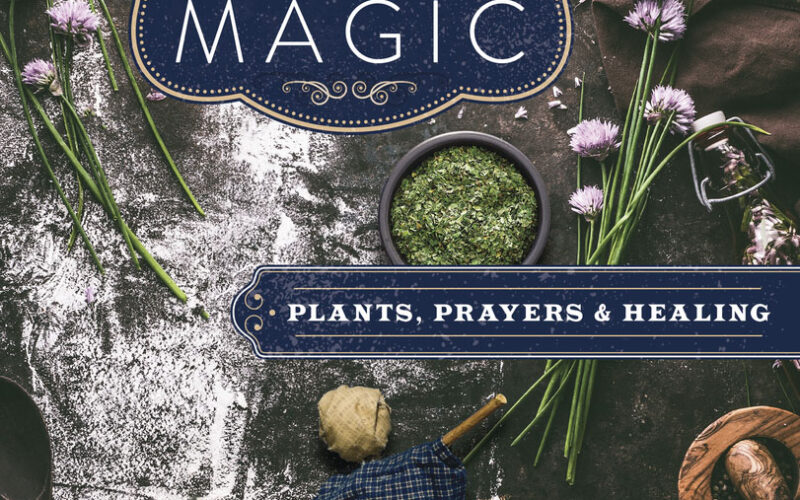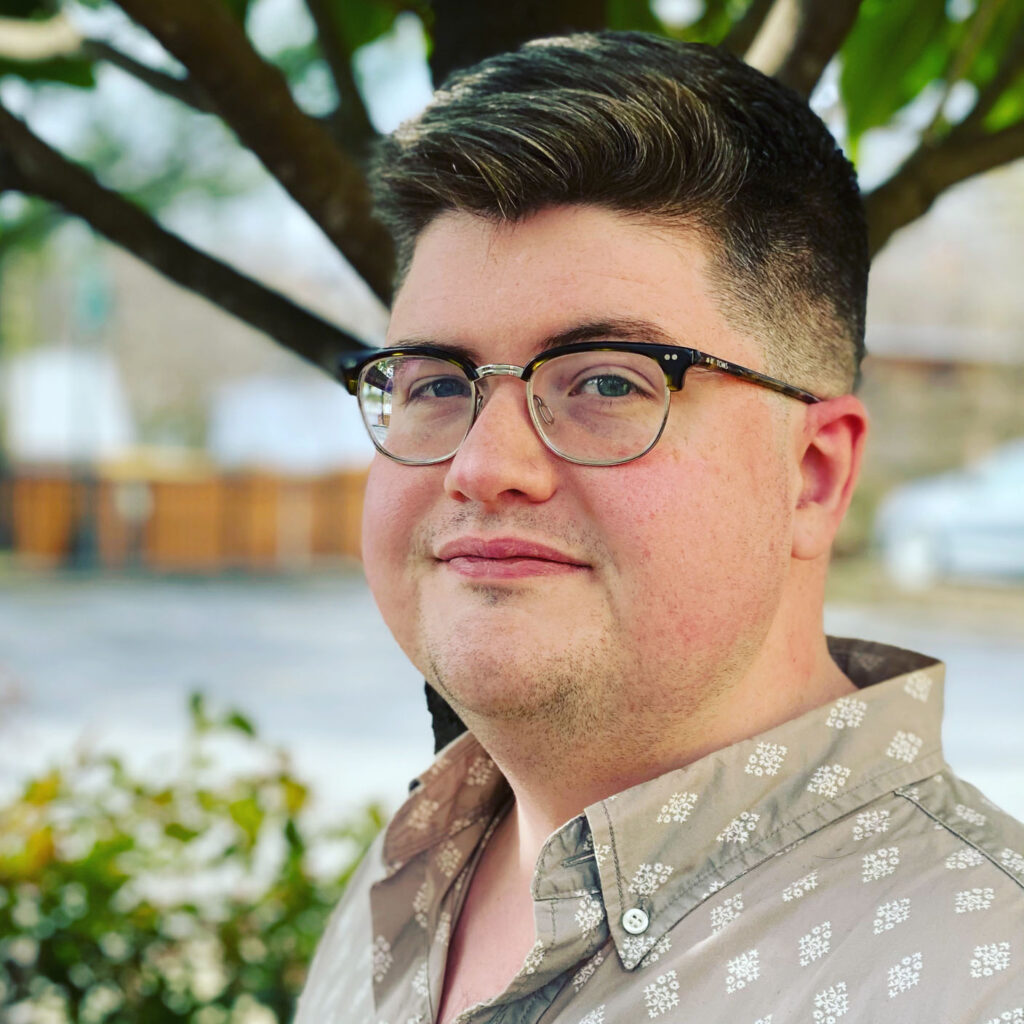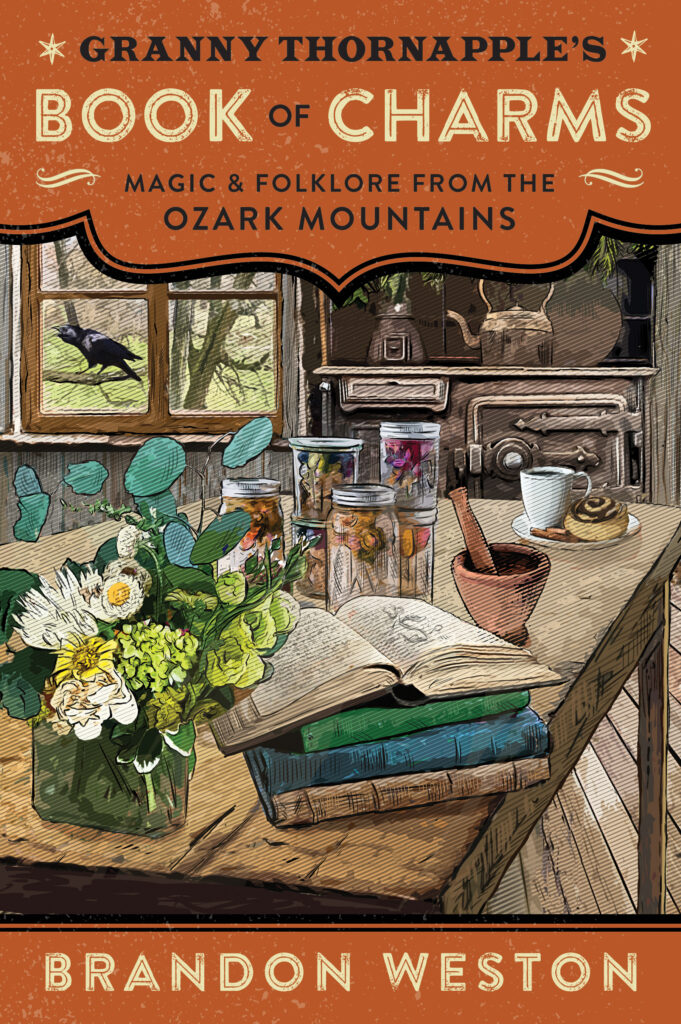Brandon Weston explains how folk healing still vital to Ozarks culture Nov. 15 at Shiloh Museum

BECCA MARTIN-BROWN
bmartin@nwaonline.com
Folk healing isn’t as far away from the bustling cities of Northwest Arkansas as one might think, says Brandon Weston.
“Herbal teas, poultices, salves, tinctures, and baths are still in our lives today — especially now when folks are getting more and more interested in traditional medicines,” says Weston, who will speak Nov. 15 at the Shiloh Museum of Ozark History in Springdale. “I’ve collected a lot of hot toddy recipes from Ozarkers, old and young alike. This mixture of hot tea, a little whiskey, lemon, ginger, honey, and sometimes even mountain herbs seems to be a go-to for a lot of people battling winter colds. Sassafras root tea is still popular amongst Ozarkers as a springtime tonic to help build up the body, made sluggish by the winter cold.”

As April Wallace wrote in a November 2022 Hidden Gems column, Weston grew up in a family of traditional Ozark healers and never gave the healing practices of the hills a second thought — until he got to college and realized his experiences were different.
“I always say that folk healing is the healing of the ‘folk’ — meaning common folk,” he adds. “These are healing traditions born from necessity by people living in isolated areas without access to more mainstream medical care,” traditions that continued from the settlement of the Ozarks in the early 1800s to the back-to-the-land movement in the 1960s and ’70s.
That’s what Weston calls the time of the “Traditionalists.”
“The Neo-Traditionalists pick up from there,” he explains. “They are still rooted in the Ozarks but have incorporated other traditions into the work as well. I like to look at the links between modern practitioners and the old timers — you know, what we have in common.”
Weston’s lecture is part of the Shiloh Museum’s Not Strictly History series, giving him room to talk about how “Ozark traditional healing aims at addressing the physical body as well as the spirit, or mind,” he says.

“In the past, these would never be separated. Each works on the other, and so each has to be addressed as part of the healing process,” he explains. “Traditional healing methods include both medicinal herbs, compounds, and home remedies, as well as prayer, verbal charms, ritual, amulets, faith healing, etc.”
Weston will also introduce some of the physical artifacts associated with folk healing.
“There are a ton of found objects and repurposed household objects that have a use in the healing process,” he says. “Like chicken feather brooms, used to ‘sweep’ illnesses and curses from the body. Roots and stones with naturally occurring holes — considered very auspicious — are used in medicine making (liquid medicine is poured through the hole as a blessing.) There’s also a selection of traditional amulets like a boar tusk, worn to strengthen the wearer’s teeth, and a coyote claw, worn as a protective amulet.”
Weston is the author of two books — “Ozark Folk Magic: Plants, Prayers and Healing” and “Ozark Mountain Spell Book: Folk Magic and Healing” — and will release “Granny Thornapple’s Book of Charms,” focusing “on the Ozark tradition of using spoken prayers and charms (often kept secret) as part of the healing work — in January.
“This tradition is presented in a very Ozark way, through stories of a fictional granny woman and healer named Granny Thornapple,” Weston says. “While the character is fictional, she is based on many healers I’ve met and a few of my own teachers.
“Traditional healing is sometimes looked down on,” he admits, “but we have to remember that these methods sustained our ancestors for generations. We can learn a lot from them still today.”
__
FAQ
‘Ozark Healing Traditions: A Hidden Art’
WHEN — 6:30 p.m. Nov. 15
WHERE — Shiloh Museum of Ozark History, 118 W. Johnson Ave. in Springdale
COST — Free
INFO — For those unable to attend in person, the event will be streamed live online. Registration is required at shilohmuseum.org.









